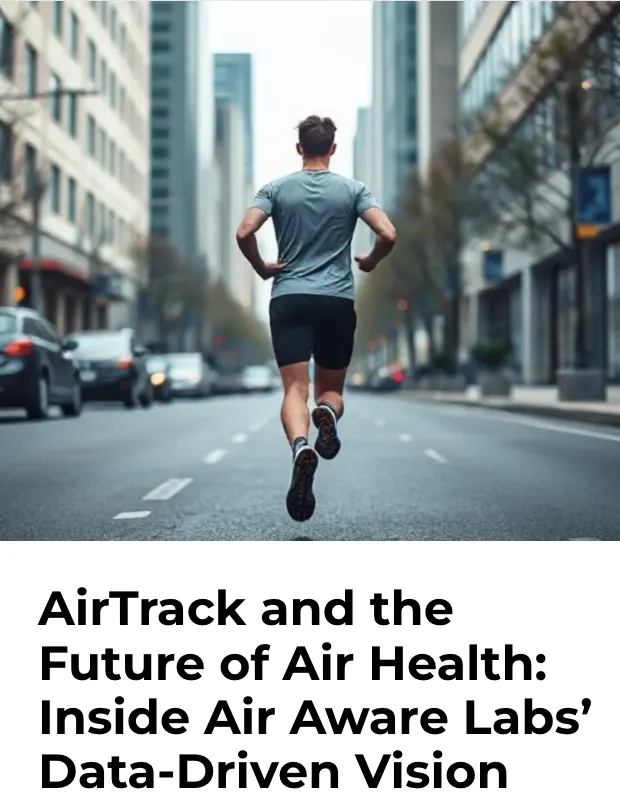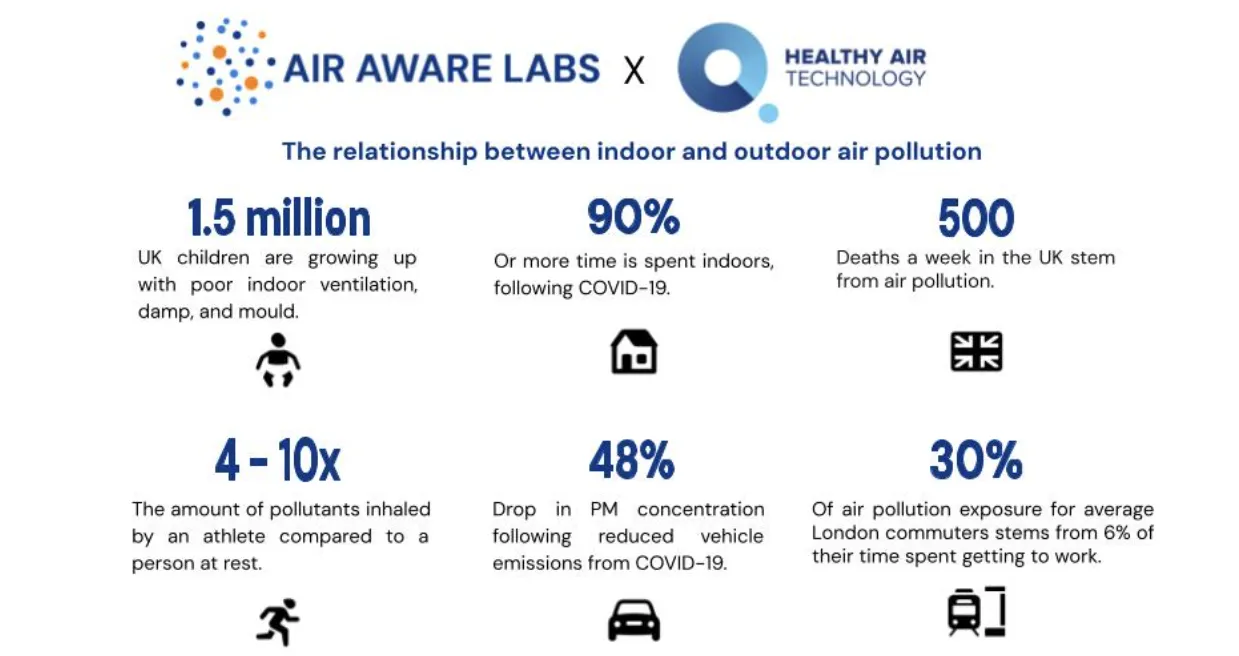Air pollution and football

Newcastle United’s historic Carabao Cup victory will go down in folklore—but their success extends beyond the pitch. In 2023, Newcastle also topped the Premier League Air Quality Table, which ranks clubs based on air quality rather than match results. The analysis revealed that only one club - Newcastle United - competed within the safe air quality guidelines set by the World Health Organisation (WHO), while London clubs Brentford, Tottenham, and Chelsea faced relegation in the air quality standings.
Previous analysis by Air Aware Labs has also demonstrated that football participants are among the athletes most exposed to elevated concentrations of nitrogen dioxide (NO2). Athletes are particularly susceptible to air pollution effects due to the significantly higher air intake required during intense physical activity, increasing their inhalation of harmful pollutants like ozone (O3), particulate matter (PM2.5/PM10) and NO2. These pollutants are known to cause oxidative stress, inflammation, decreased lung function, impaired athletic performance, and potential long-term health complications.
Impact on performance
A study analysing 8,927 match observations involving 461 Bundesliga players in the 2017/2018 and 2018/2019 seasons found that increased air pollution significantly reduced both total distance covered and high-intensity efforts during matches. Even a slight increase in pollution levels resulted in a measurable decline in performance due to adverse physiological effects.
The Bundesliga data indicate that players, on average, complete 26 to 34 passes per game with a 77% accuracy rate, with 90% of these passes being short (under 30 metres). However, when PM10 levels rise, players tend to make longer passes to reduce physical exertion. While this adjustment may reduce immediate physical strain, it can also disrupt the team's game strategy and decision-making. Relying more on long passes not only affects the flow of the game but also requires players to shift their mindset. The change in strategy can lead to frustration and confusion, as players are forced to adapt quickly to conditions that feel unnatural, ultimately hindering both individual and team performance.
Air pollution particularly affects performance when athletes compete in environments with different pollution levels than they are accustomed to. Players traveling from cities with cleaner air to those with higher pollution levels experience a 2% decrease in pass participation and a 3.1% drop in pass accuracy. Home teams can acclimatise to ground-level ozone levels, but they are still exposed to other pollutants that impact their performance. However, visiting teams are affected more than home teams, experiencing up to a 7.1% reduction in participation and a 7.8% drop in accuracy due to unfamiliar pollution exposure. Overall athletic performance can decrease by up to 16% in heavily polluted conditions, demonstrating the important role acclimatisation plays in athlete performance.
Supporting Teams with AirTrack
Football has a global reach, but given the significant impact of air pollution on footballers’ performance, Air Aware Labs is set to play a significant role in helping footballers mitigate these effects. Through AirTrack, Air Aware Labs’ flagship product, athletes and coaches can monitor personal exposure to air pollution during training sessions and matches, enabling tailored adjustments to their conditioning routines. Teams can strategically integrate air quality data into their travel and training planning, selecting locations and schedules optimised for cleaner air conditions, thus maximising competitive performance and health outcomes.
By bridging the gap between air quality awareness and athletic performance, Air Aware Labs empowers football players and organisations to make informed decisions that protect both their health and the environment. As sustainability becomes increasingly important in professional sports, clubs adopting these solutions are not only safeguarding their athletes’ well-being but also positioning themselves for a competitive edge. Indeed, perhaps we will soon see Newcastle winning the real Premier League.
By Abby Manthous, overseen by Dr Will Hicks


.svg)











